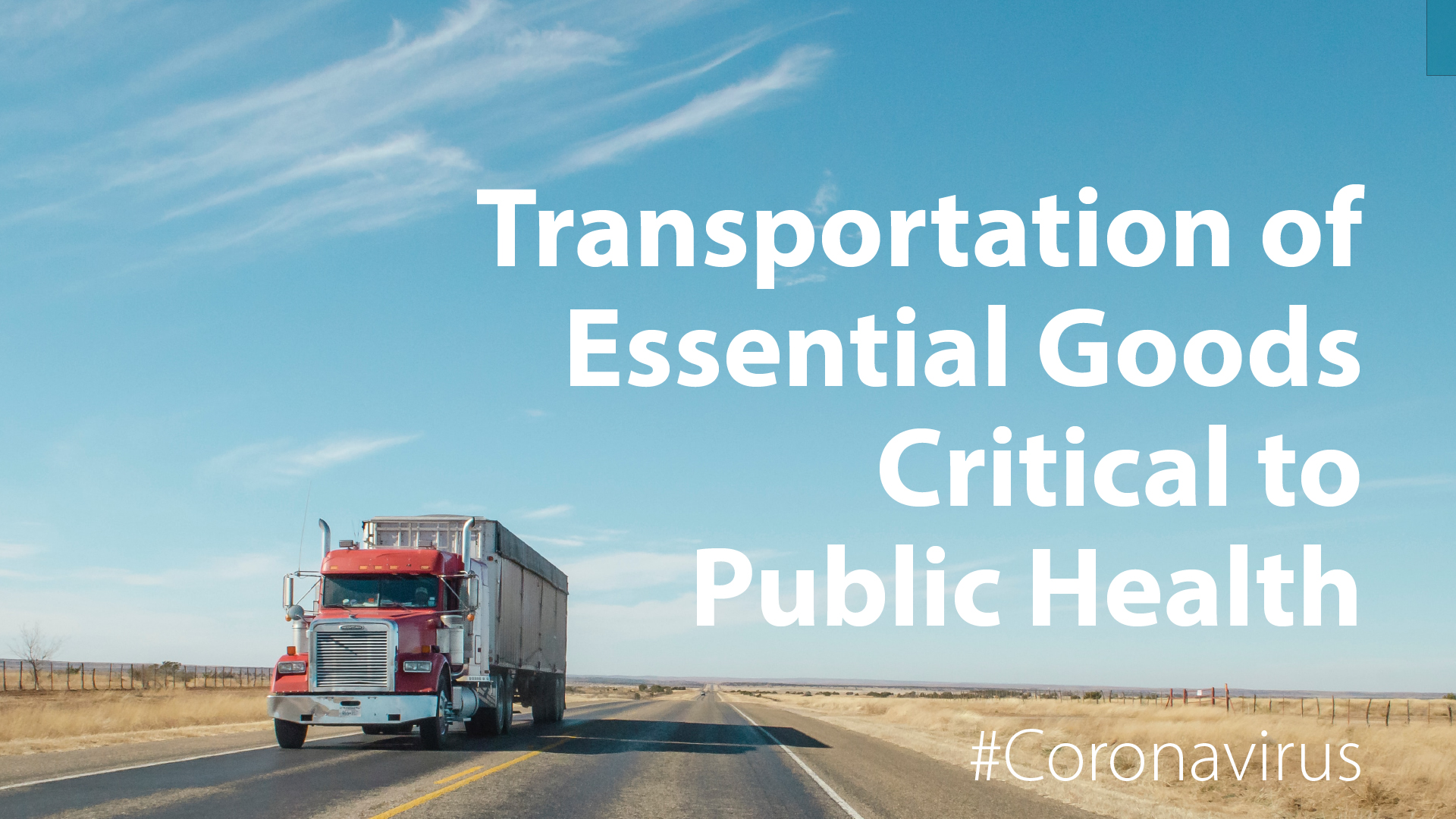This website uses cookies so that we can provide you with the best user experience possible. Cookie information is stored in your browser and performs functions such as recognising you when you return to our website and helping our team to understand which sections of the website you find most interesting and useful.
News
Transportation of Essential Goods Critical for Protecting Public Health
As the Department of Homeland Security’s (DHS) Cybersecurity and Infrastructure Agency (CISA) has recently announced what businesses are deemed essential and should continue working unrestricted amidst the COVID-19 (coronavirus) outbreak, it can be interesting to see just how far up the supply chain we must go to ensure these critical businesses remain able to operate. Sure, it’s apparent that healthcare, medical and food industries are among the most essential. But it doesn’t just stop there. The transit industry, the truck drivers who transport these goods are just as essential as the industries producing and using these goods.
In the medical industry alone, hospitals will need to continuously receive new shipments of IV bags, medical tubing, hospital gowns, gloves, and so much more. But besides just simply ordering these items, manufacturers also have to be constantly making them. And the medical supply product manufacturers need continuous supply of the chemicals necessary to create it. We were pleased to see that CISA recognized the plastics and chemicals industry as critical during this outbreak:
Workers who support the production and transportation of chlorine and alkali manufacturing, single-use plastics, and packaging that prevents the contamination or supports the continued manufacture of food, water, medicine, and other essential products, including glass container manufacturing.
But besides just making these products, we also must consider how these products will be transported to where they’re needed. Truck drivers are another group of employees that CISA deemed as essential, but unfortunately, some policies that are being enacted to prevent the spread of coronavirus are counterintuitive to getting our essential goods where they’re needed most—for example, some rest areas are being shut down, which are critical for truck drivers so that they can rest or take a personal break.
For this reason and others, we join the American Trucking Association in asking the Administration to consider trucking as they enact policies to protect our public health. Some policy imperatives include:
- Exempt trucking services for the delivery of essential goods explicitly from restrictions. Guidelines that make clear the role of shipping necessities by truck will ensure smooth resupply and delivery.
- As many states shutter their DMV facilities, support the ability of the trucking industry to continue to provide critical services by providing alternatives for drivers who need to renew or obtain commercial drivers licensing credentials.
- Keep rest stops open – commercial drivers have temporary relief from Hours of Service regulations, but they must manage fatigue as they respond to this emergency, and rest stops are an irreplaceable component, along with commercial truck stops.
- Provide guidance for the health of drivers, including possible testing for COVID-19. Clear guidance on public health assets is important to our employees, just like it is for all other Americans, and our drivers are typically away from home.
Our communities desperately need the goods these truckers are transporting, so we request that these individuals be considered, as new restrictions are implemented to protect our public health.


